The event featured lectures by public and private organizations that encourage innovation in Brazil.
To answer the main questions on this topic, ABES launched, in partnership with the consultancy ABGI, the 2nd Edition of the Innovation Promotion Guide for the ICT sector, presented at an event for a group of entrepreneurs, which featured lectures by BNDES, ABGI, FINEP, Kick Venture and BR STARTUPS Fund. The publication gathers information on the main mechanisms and programs, with their respective lines of financing or tax incentives to support innovation in Brazil. Download the guide at this link.
Rodolfo Fücher, president of ABES, pointed out that “the appropriate financing and promotion lines are vital for the development of the Brazilian technology and software sector. The Innovation Promotion Guide provides the entrepreneur, whether from a startup or a large company, with conditions to evaluate and understand the most diverse options existing in Brazil, in order to facilitate the identification of the most suitable path to the project ”. Download ABES presentation here.
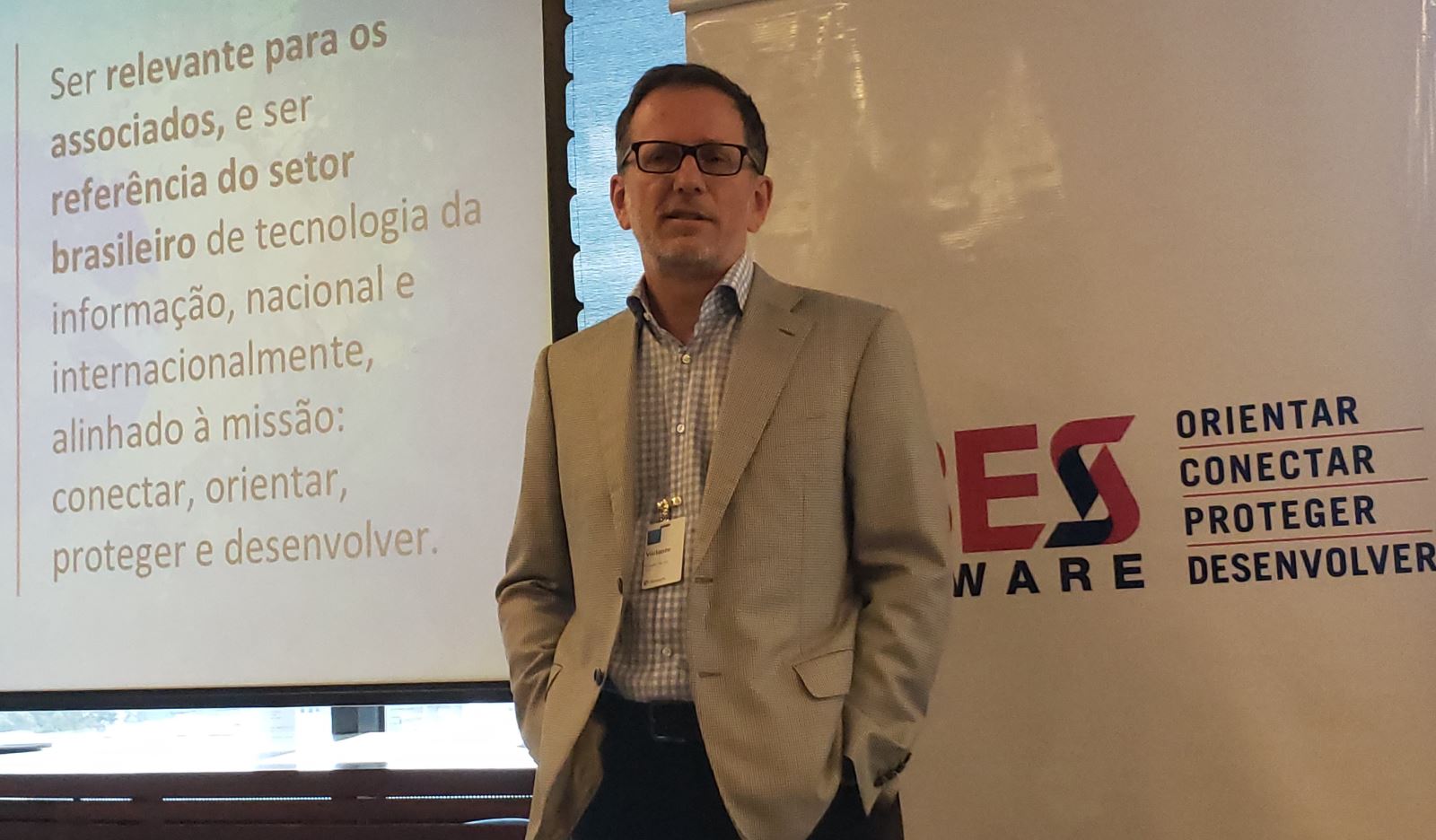
According to Jamile Sabatini Marques, director of Innovation and Promotion at ABES, the objective of the Guide is to make life easier for the entrepreneur. She also pointed out that the mapping has been used by the government for consultation, given its breadth. “We have identified more than 50 promotion opportunities for companies that need to invest in innovation. To facilitate its use, we have an index organized by types of resources and we point out the territorial scope, status and target audience ”, he explained. Presentation available here.
Development banks and Incentive agencies
Marco Antônio Leite, an economist at BNDES, presented the bank's different financing lines, highlighting those most targeted at the ICT sector and those that are appropriate for small and medium-sized companies, as well as startups, through BNDES Garagem. “One of the BNDES 'goals is to modernize the country's infrastructure with a focus on the digital economy and, within it, the creative economy, with games and audiovisual. We also seek to support the transformation of traditional business models and the insertion of Brazil in the global and knowledge economy. We are studying models to support fintechs ”. Full presentation here.
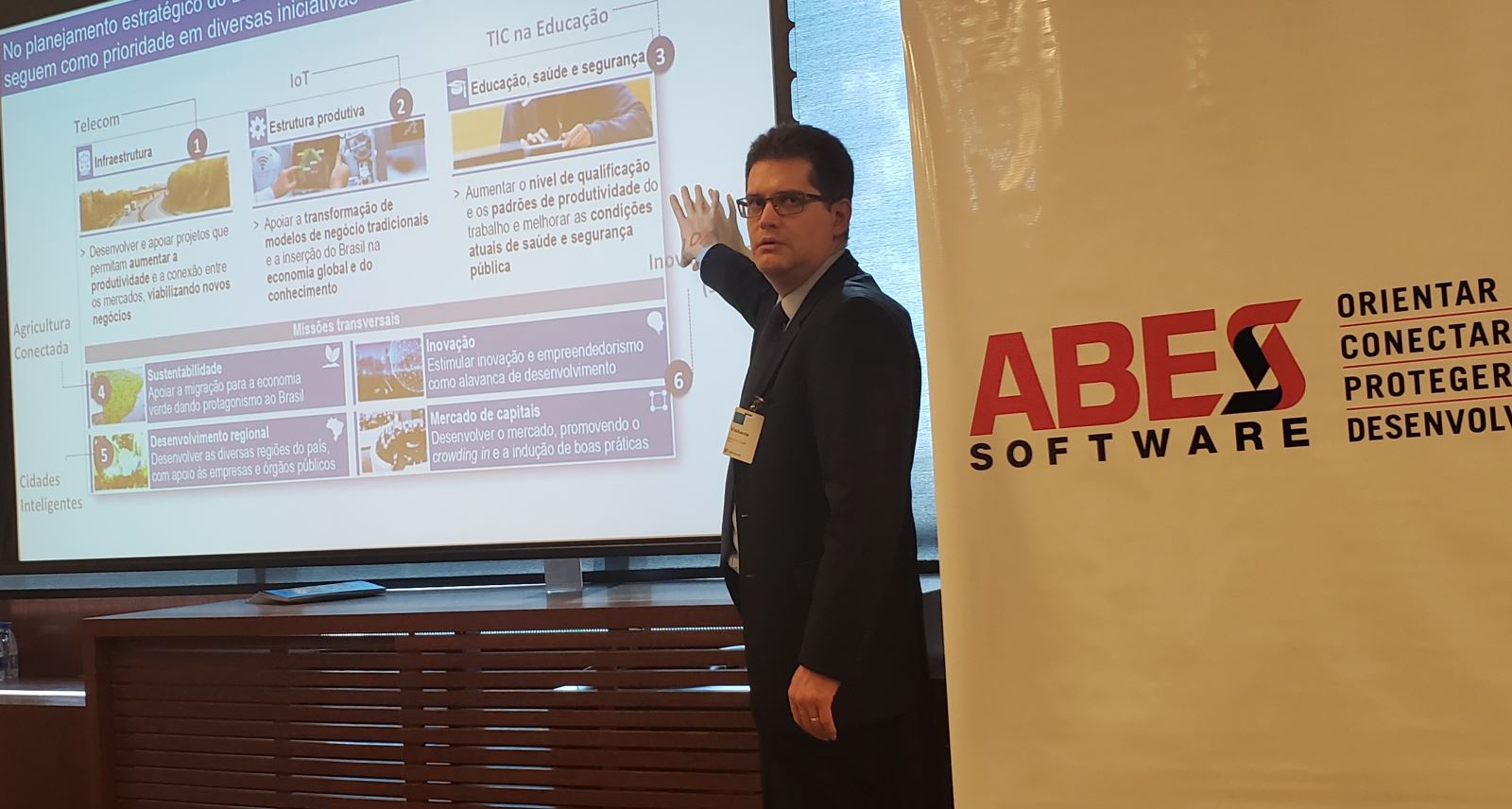
Leonardo Tavares, ABGI consultant, presented a view of the sources of funding, which are divided into tax incentives, direct and indirect financial resources, in addition to highlighting the best practices for innovation management processes. He spoke about the consultancy's action fronts with the entrepreneur, whether guiding him about options according to the project, company size and innovation risk level. Click to download the presentation.
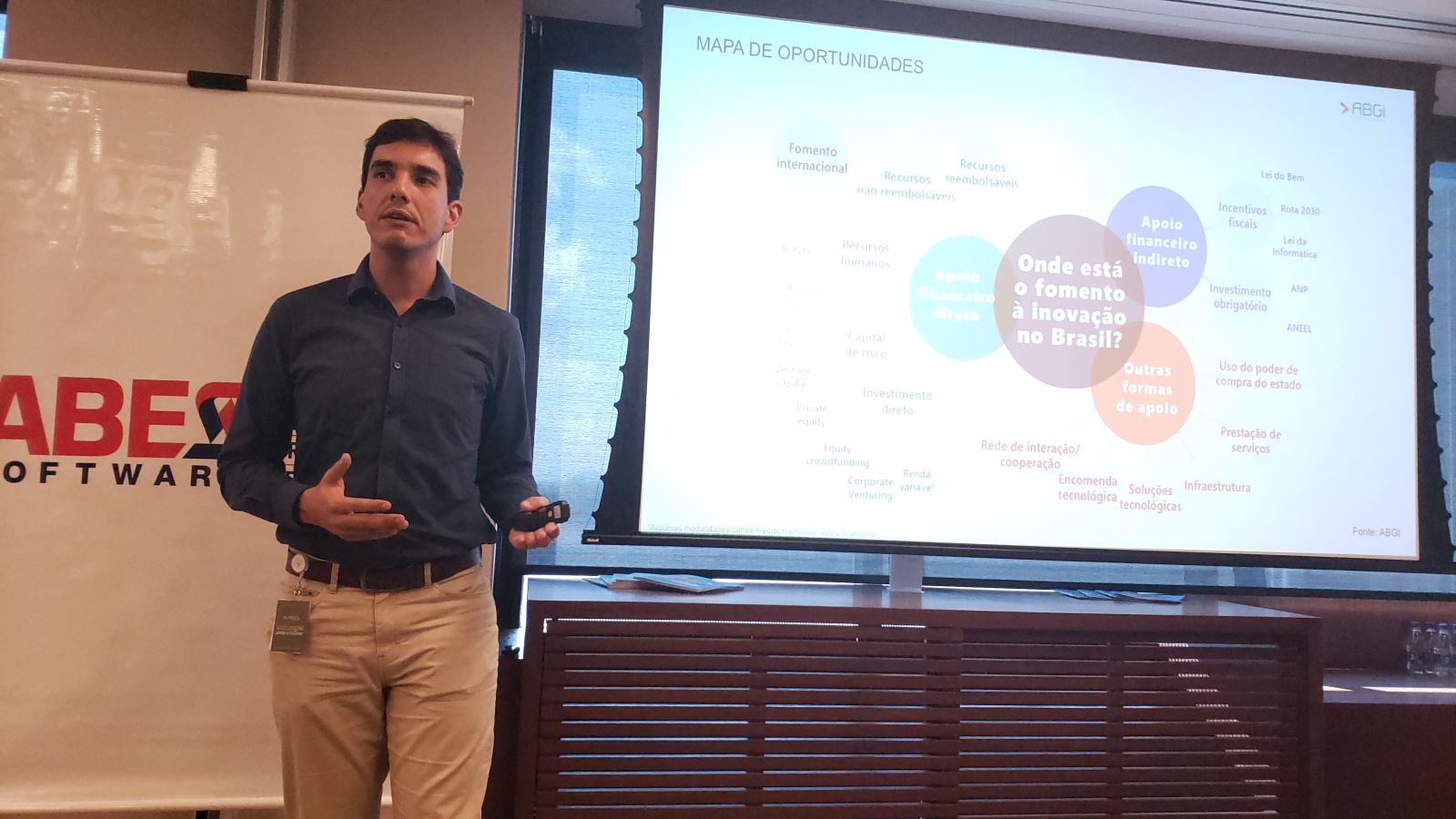
The Lei do Bem was approached by Fernanda Vieira, an ABGI consultant, when she clarified that “the government's objective with this incentive is to share the risk with the entrepreneur. One of the requirements of this rule is the need for companies to declare their IR for real profit, which requires a detailed monitoring of expenditures with innovation projects, as everything must be declared in the required reports of accountability ”, he explains.
Daniel Morita, from FINEP, highlighted the breadth of innovation projects that the agency finances, covering most of the expenses, such as: equipment, software, training, travel, consulting services, market studies, among others. "To support micro and small companies, in view of the need to be close to them, Finep established partnerships with regional banks, which are responsible for financing up to R$ 10 million", he explained. Presentation here.
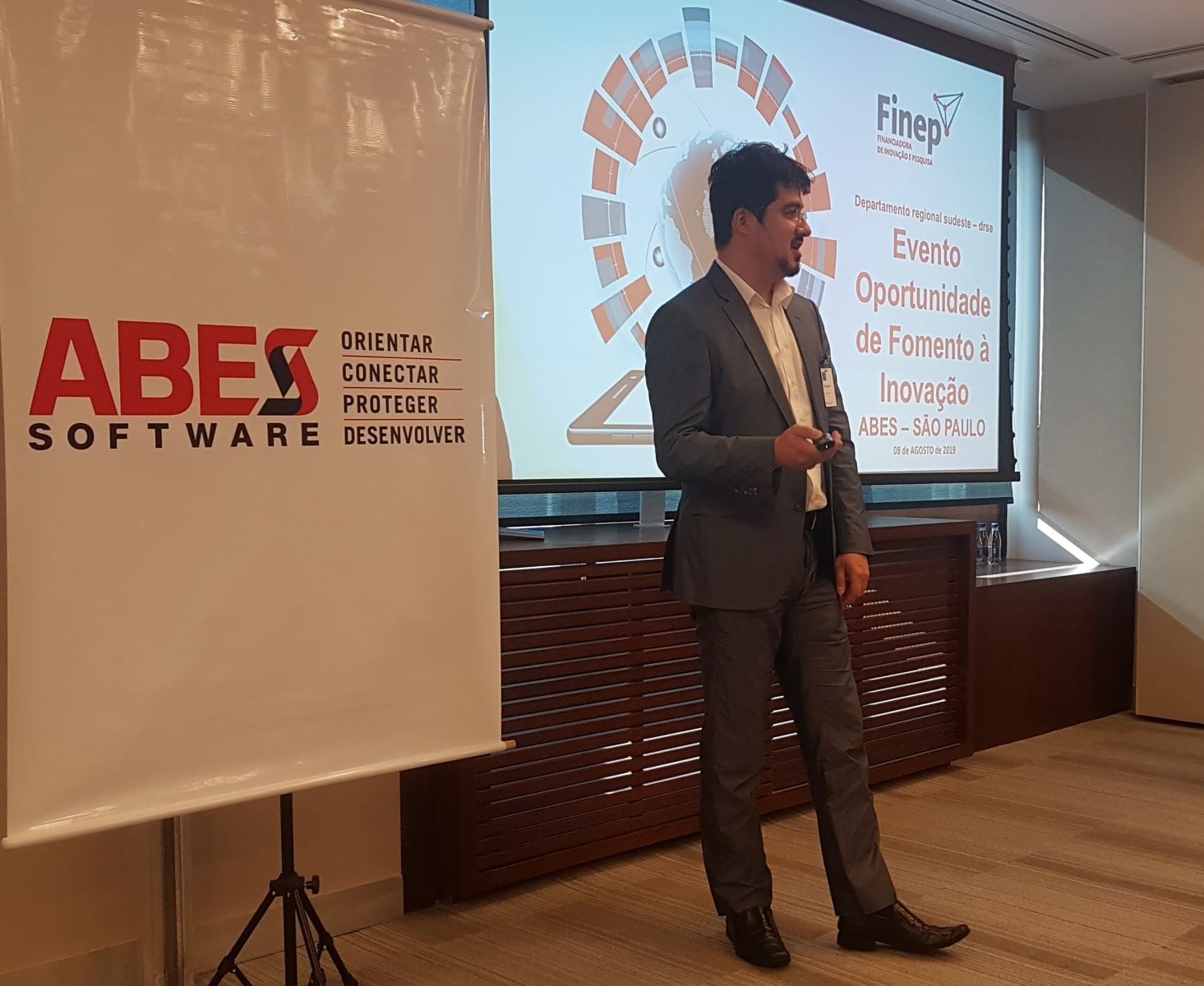
Funds and accelerators
Kick Ventures, considered by the market as one of the main Venture Builder Capital in Latin America, was represented at the event by its CEO, Rodrigo Quinalha, who reported his strategy with the startups. "We support businesses that have in their DNA the 5Ds of digital transformation and exponential growth", he highlighted, which are: digitization, disruption, demonetization, dematerialization and democratization. The young entrepreneur cited, as an example, the data that points out that 71% of current jobs will cease to exist or will be modified by 2030, a new dynamic of employability, which should impact the performance of leaders. "We seek to drive innovation and disruption as a way of integrating corporations into the ecosystem of innovative startups that want to have their project recognized globally," he added. Presentation available here.
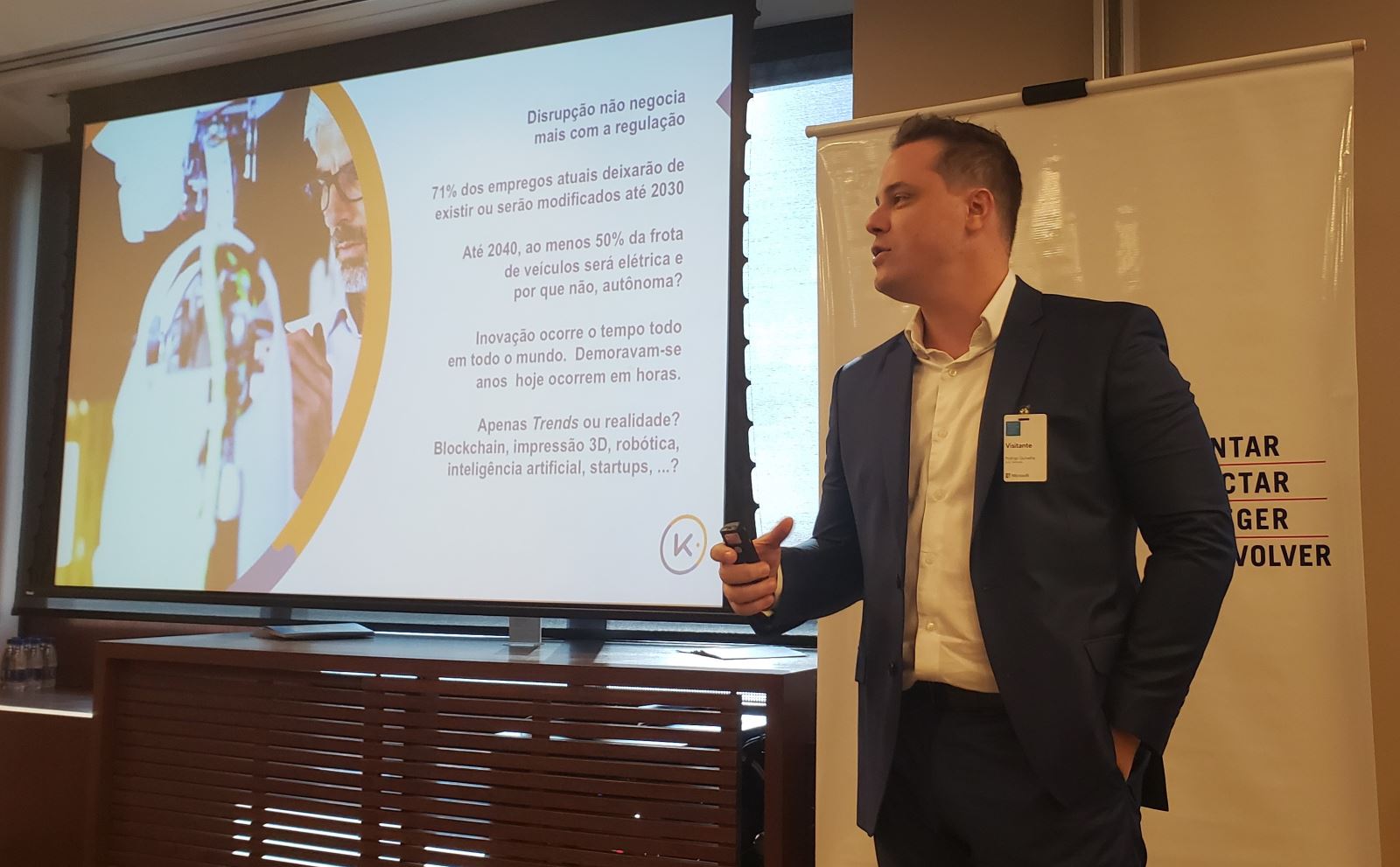
According to Franklin Lights Jr., COO of Microsoft Participações, creator of the BR STARTUPS Fund, despite the fact that Brazilian professionals have creativity as a strong characteristic, especially when it comes to creation and innovation, “Brazil is not seen as a pole of innovation by investors foreigners. It is necessary blood, sweat and tears for those who undertake so as not to see their project die ”, he pointed out. Downloadable material.
In his view, large corporations can (and should) support companies that are being born. The Microsoft executive informed that the fund has the participation of companies such as Banco Votorantim, Grupo Algar and Banco do Brasil. He cited the case of the Brazilian startup Car10, supported by BR STARTUP, which created an application whose objective is to make life easier for those who crash the car. “This platform was 100% built with artificial intelligence, as it learned to assess the damage to vehicles, to provide the budget, from more than 50 thousand images. The system geo-references to see the workshop closest to the person, calculates the budget for that repair and payment is also made via the application. There is no longer human interaction in this process ”, he concluded.
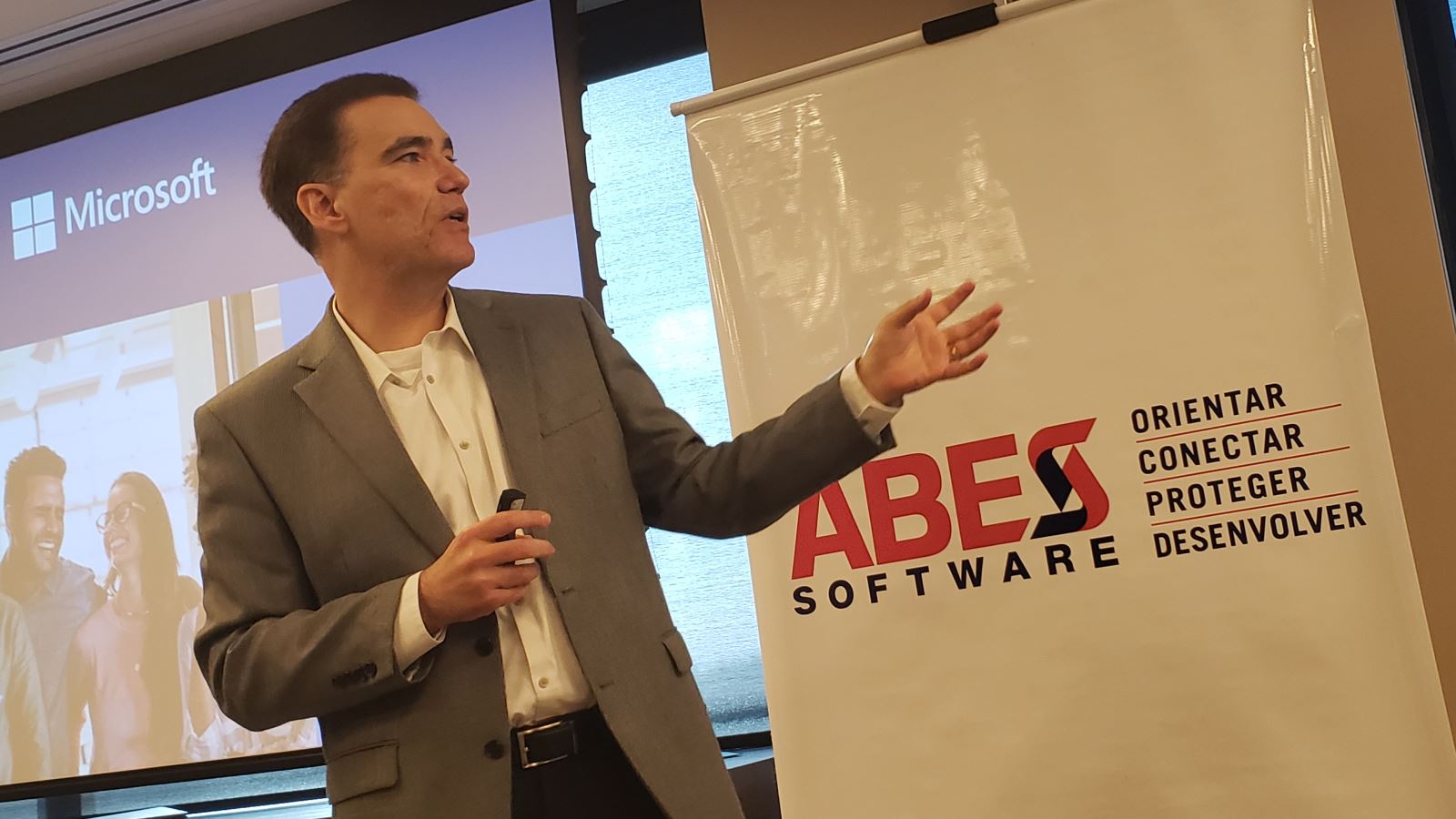
Download 2nd Edition of the Innovation Promotion Guide for the ICT sector, an ABES and ABGI partnership.
Watch the video with a summary of the event:













